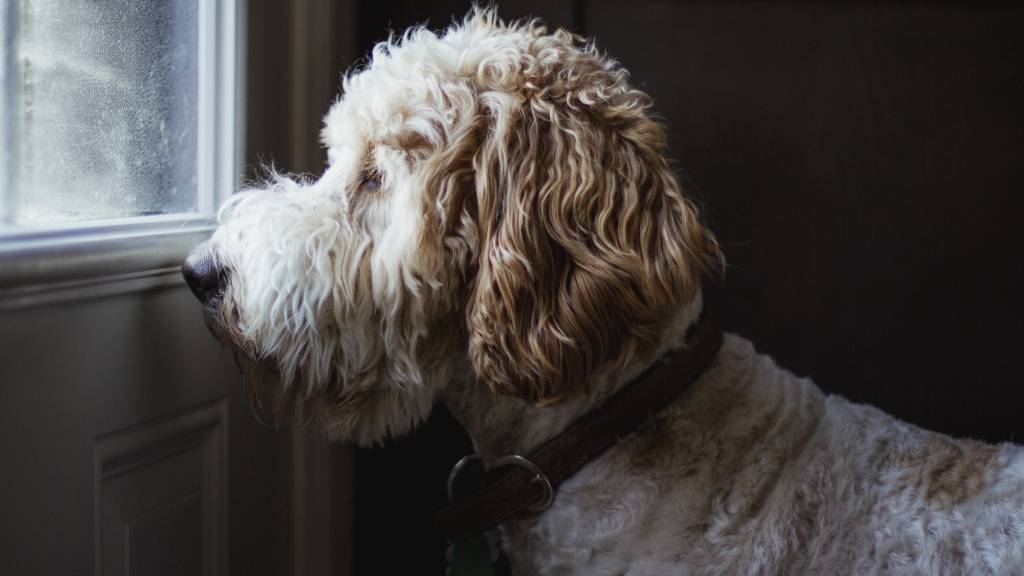Returning to the office? Here’s how to tell your dog

The COVID-19 pandemic has certainly thrown any semblance of ‘routine’ out the window for most Australians. Some of us are now working from home, the majority of us aren’t going out except for essential trips, and generally we have more time around the house. That’s been great news for our pets, with a surge in dogs and cats being adopted and plenty of extra time to spend with them at home.
But dogs thrive on routine, and they don’t understand that this ‘new norm’ won’t last forever. In fact, with restrictions slowly easing across the country, many Australians are heading back to their workplace, which means a big change for their furry friends. Here’s how to help your dog adjust to you returning to work.
How to re-establish a dog routine before returning to the workplace
While many businesses are starting to slowly reintroduce employees back into the workplace in a physical capacity, the general advice is that staff must be given plenty of notice beforehand, especially if they’ve already been working from home in recent months.
This is a great opportunity to start realigning your lifestyle to help your dog adjust. While you won’t want to immediately leave the house for 9 hours at a time, it’s a good idea to slowly teach your dog that it’s okay when you leave in the morning. You can make shorter trips away from home, or place them in their usual spot (whether outside or in a room with a doggy door to the backyard) until they become accustomed to your extended absence over the course of a few days.
Positive reinforcement is key here, as you don’t want your dog to fret while you are away or display other bad habits.
Key concerns for dog owners going back to work
This leads us into some of the biggest concerns for dog owners who are heading back to work. With so much time to spend with your furry friend, they’ll get a rude shock if you suddenly jump back into your normal work routine, and this can have major consequences for your pup, including:
- barking
- whining and whimpering
- jumping the fence
- digging holes
- chewing objects that aren’t their toys
Try to re-establish their normal (pre-COVID) routine while you are still at home, but if you have an anxious dog or one with severe separation anxiety, it could be necessary to engage a professional dog trainer to ease the transition. Alternatively, you could help your dog keep occupied during the day by hiring a dog walker; they are generally cheap to hire and can entertain your pup while you’re at work.
Top tips for helping your dog adjust to your work life
Are you about to return to your workplace and unsure how your dog will cope? Try these tips as early as possible.
Fill their mornings with exercise
The best way to burn off some of your dog’s pent-up energy is to exhaust him or her with good-old exercise. Take them for a run, play a long game of fetch in the backyard, have a hearty game of tug-of-war with their favourite toy; there are plenty of ways to get your dog zonked so they’ll enjoy a long sleep while you’re at work.
Encourage independence
As long as it’s safe to do so, it’s a good idea to let your dog roam the backyard on their own. During the pandemic lockdown they have likely built up a greater dependence on you, so let them become more independent with time on their own. An interactive puzzle toy or a long-last chewable will keep their minds active without you having to always be there.
Be aware of the signs of stress
Sudden or unexpected changes to your dog’s routine can cause anxiety initially, but remember they are resilient animals. What’s important is that you are aware of the signs of stress and anxiety, especially if they are ongoing. Whining, whimpering, excessive panting, pacing or even lying at your feet while looking depressed are all classic signs, especially if your dog does these when you’re getting ready for work. Worse are things like barking, fence-jumping and destructive behaviour when you’re gone. Remember that a tired dog is a happy dog, and if you’re still having problems you can think about crate training or enlisting the help of a dog professional.
Life will eventually go back to normal
While COVID-19 may have been a great holiday for your dog, life has to return to normal sometime. Help them be mentally and emotionally prepared for you being away from home longer by using these helpful tips.
You can also cover yourself financially against the unexpected – such as your dog becoming ill or injured and needing expensive vet treatments. Pet insurance can help put your mind at ease that you won’t be left with massive bills to pay on your own should your dog get into a spot of trouble!
12 Aug 2020